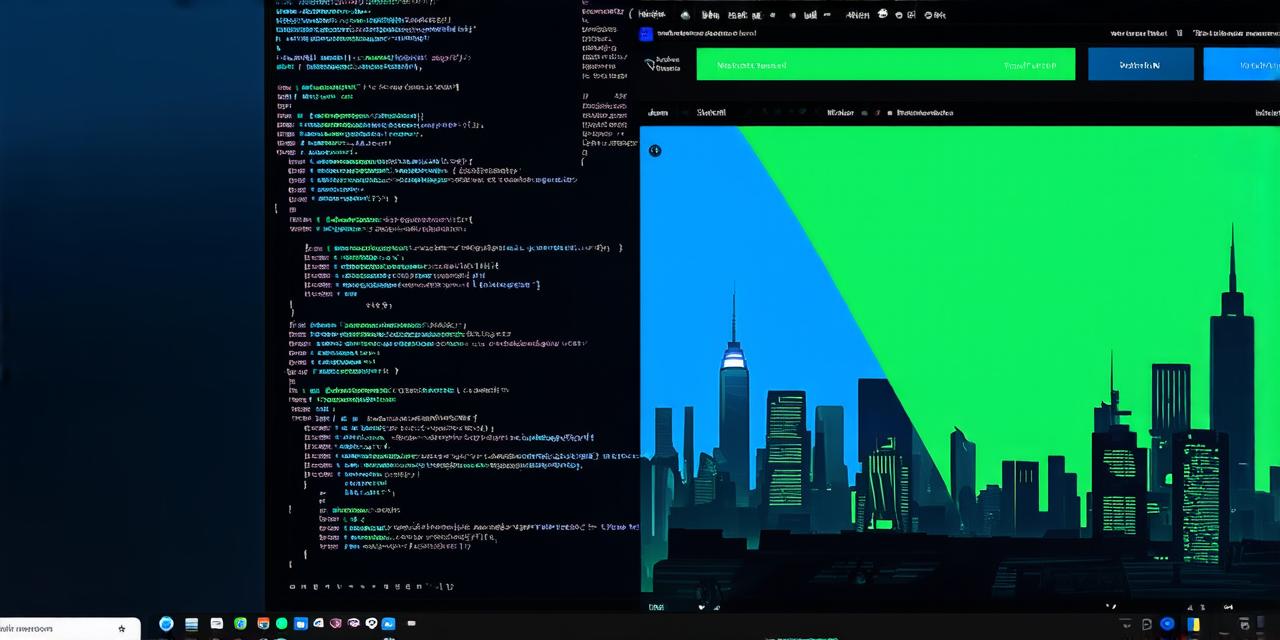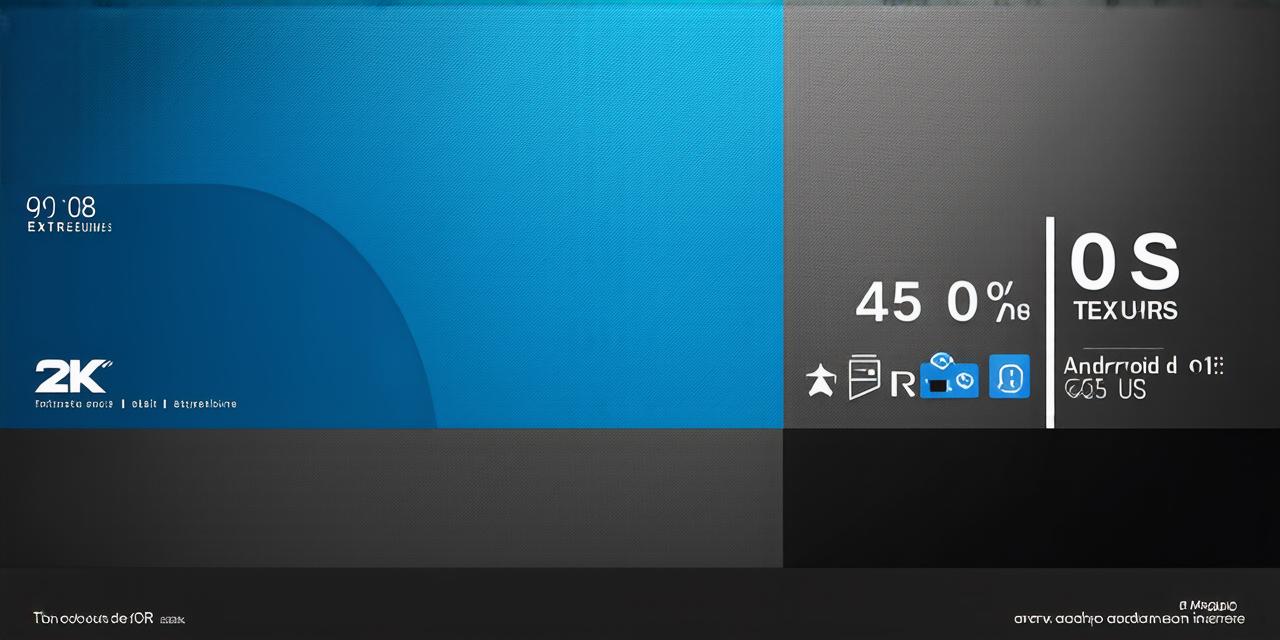In this article, we will explore the pros and cons of web development versus Android development for Android game development, and help you make an informed decision about which approach to take.
Web Development
vs.
Android Development
: An Overview
Before we dive into the details of each option, let’s first take a look at what web development and Android development involve.
Web Development
Web development involves building applications that run in a web browser on a desktop or mobile device. These applications are typically built using HTML, CSS, and JavaScript, and can be accessed from anywhere with an internet connection.
Cross-platform compatibility
One of the key benefits of web development is cross-platform compatibility. Web applications can be accessed from any device that has a web browser, regardless of the operating system or hardware.
Low development costs
Another benefit of web development is its relatively low development costs. Web development requires less specialized knowledge and resources than Android development, making it a good option for smaller studios or indie developers.
Ease of maintenance
Web applications are also typically easier to maintain than Android applications. Changes can be made quickly and easily without requiring users to download and install new software.
Android Development
Android development involves building applications for the Android operating system. These applications are typically built using Java or Kotlin, and must be downloaded and installed from the Google Play Store.
Native access to device features
One of the key benefits of Android development is native access to device features. Android applications have direct access to the device’s hardware and software, allowing them to take full advantage of the device’s capabilities.
Greater control over user experience
Android developers also have more control over the user experience. They can customize the appearance and behavior of their application in ways that are not possible with web applications.
Large and growing user base
Finally, Android development provides access to a vast audience of potential customers. The Android operating system has a large and growing user base, making it an attractive platform for developers.
Pros and Cons of
Web Development
for Android Game Development
Now that we have a basic understanding of what web development and Android development involve, let’s take a closer look at the pros and cons of each option when it comes to developing games for Android.
Web Development
Pros
Cross-platform compatibility
One of the main benefits of web development is cross-platform compatibility. Web applications can be accessed from any device with a web browser, making them a great choice for developers who want to reach as many people as possible.
Low development costs
Another benefit of web development is its relatively low development costs. Web development requires less specialized knowledge and resources than Android development, making it a good option for smaller studios or indie developers.
Ease of maintenance
Web applications are also typically easier to maintain than Android applications. Changes can be made quickly and easily without requiring users to download and install new software.
Flexibility in terms of monetization
Finally, web games can be monetized through a variety of methods, including advertising, subscription fees, or in-app purchases.
Web Development
Cons
Limited access to device features
One of the main drawbacks of web development is limited access to device features. Web applications do not have direct access to the device’s hardware and software, limiting their ability to take full advantage of the device’s capabilities.
Dependence on internet connection
Web games require an internet connection to function, which can be a problem for users who do not have reliable access to the internet.
Limited control over user experience
Finally, web developers have limited control over the user experience, as they cannot customize the appearance and behavior of their application in ways that are possible with native applications.
Pros and Cons of
Android Development
for Android Game Development
Now let’s take a closer look at the pros and cons of each option when it comes to developing games for Android.
Android Development
Pros
Native access to device features
One of the main benefits of Android development is native access to device features. Android applications have direct access to the device’s hardware and software, allowing them to take full advantage of the device’s capabilities.
Greater control over user experience
Android developers also have more control over the user experience. They can customize the appearance and behavior of their application in ways that are not possible with web applications.
Large and growing user base
Finally, Android development provides access to a vast audience of potential customers. The Android operating system has a large and growing user base, making it an attractive platform for developers.
Android Development
Cons
Higher development costs
One of the main drawbacks of Android development is its higher development costs. Android development typically requires more specialized knowledge and resources than web development, making it more expensive for smaller studios or indie developers.
Increased maintenance costs
Android applications are also generally more difficult to maintain than web applications, as changes require users to download and install new software.
Fragmentation of the platform
Finally, the Android operating system is highly fragmented, with many different versions and devices in use, which can make it challenging to develop applications that work seamlessly across all platforms.
Case Studies:
Web Development
vs.
Android Development
for Android Game Development
Now let’s take a look at some real-life examples of web development versus Android development for Android game development.
Web Development
Example: Angry Birds
Angry Birds is one of the most popular mobile games of all time, and was initially developed for web browsers before being ported to mobile devices. The game was a huge success on the web, with millions of users playing it every day.
Initial development on web
The developers chose to initially develop the game for web browsers, which allowed them to quickly reach a wide audience and test their game in a familiar environment. However, when it came time to bring the game to mobile devices, the developers chose to develop for Android and iOS rather than the web.
Native access to device features
One of the reasons for this decision was the need for native access to device features. The developers wanted to take advantage of the device’s hardware and software, which they were unable to do on the web.
Greater control over user experience
The developers also wanted more control over the user experience, as they could customize the appearance and behavior of their application in ways that were not possible with web applications.
Larger and more engaged user base
Finally, the developers wanted to reach a wider audience, as Android and iOS had larger and more engaged user bases than the web.
Android Development
Example: Pokémon GO
Pokémon GO is another example of a successful mobile game that was developed for Android and iOS. The game was developed by Niantic, a company that specializes in augmented reality games.
Native access to device features
One of the key reasons why Pokémon GO was developed for Android and iOS rather than the web is because it required access to the device’s hardware and software. The game uses the device’s camera and GPS to overlay virtual creatures onto the real world, which would not be possible on a web-based platform.
Greater control over user experience
The developers also wanted more control over the user experience. They were able to customize the appearance and behavior of their application in ways that were not possible with web applications.
Larger and more engaged user base
Finally, the game’s developers wanted to reach a wider audience, as Android and iOS had larger and more engaged user bases than the web.



